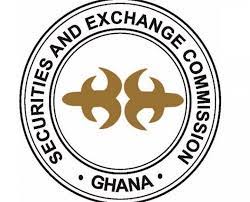- unlocks fresh US$360m
- brings total under ECF to US$1.92bn
By Joshua Worlasi AMLANU & Ebenezer Chike Adjei NJOKU
A staff-level agreement (SLA) with the International Monetary Fund (IMF) as part of the country’s Extended Credit Facility (ECF) programme’s third review has been reached.
This agreement, announced on October 4, 2024, is expected to unlock US$360million in financing pending approval from the IMF Executive Board in December. This new tranche will bring total disbursement under the programme to US$1.92billion since its inception in May 2023.
The SLA follows an intensive two-week review by an IMF mission led by Stephane Roudet, the Fund’s Mission Chief for Ghana.
Mr. Roudet acknowledged the nation’s strong performance under the IMF-supported programme, noting that the country has met all its quantitative targets for June 2024 and made steady progress on key structural reforms.
“Performance under the IMF-supported programme has been generally satisfactory,” the Mission Chief said.
“All end-June 2024 quantitative targets were met and progress on key structural reforms has continued, notwithstanding delays in a few areas,” he added.
He further highlighted that the agreement is subject to IMF Management and Executive Board approval, after which Ghana will gain access to the next tranche of funds under the ECF programme.
“Upon completion of the Executive Board review, Ghana will have access to SDR 269.1 million (about US$360million); bringing the total IMF financial support disbursed under the arrangement to SDR 1,441 million (about US$1,920million),” he added.
Economic growth, fiscal discipline
This comes as the country has recorded a marked improvement in its economic recovery, which continues to surpass expectations.
Real Gross Domestic Product (GDP) growth reached 5.8 percent in the first half of 2024, driven primarily by growth in the mining, construction and information & communication sectors.
This growth rate has far exceeded government’s initial annual target of 3.1 percent.
“The economy is expanding at a rate we have not seen in five years,” commented Dr. Mohammed Amin Adam, Minister of Finance.
He attributed the recovery to government’s effective stabilisation measures and structural reforms.
The IMF Misson Chief echoed this sentiment, emphasising that “economic growth in the first half of 2024 was much higher than initially envisaged, with a broadening of growth sources across sectors during the second quarter”.
However, the IMF noted that recent challenges – such as a dry spell in the northern regions – may impact agricultural output and food prices for the rest of the year.
Mr. Roudet however expressed optimism that government’s policy response will mitigate these risks, adding that the Bank of Ghana’s tight monetary policy stance should support the continued decline in inflation – which stood at 21.5 percent in September, down from 54 percent in December 2022.
Debt restructuring milestones
A key achievement under the IMF-supported programme has been the significant progress in restructuring public debt. The country successfully completed a Eurobond debt exchange that received a 98 percent consent rate from bondholders.
This exchange is expected to reduce the total debt stock by US$5billion and provide substantial debt service relief between 2023 and 2026.
Additionally, Ghana has restructured more than 90 percent of its eligible external debt, following a Memorandum of Understanding reached with the Official Creditors Committee (OCC) under the G20 Common Framework in June.
“The authorities are committed to pursuing good-faith efforts to reach an agreement with other commercial external creditors on a debt treatment consistent with programme parameters,” Mr. Roudet said.
This progress in debt restructuring is seen as crucial to creating fiscal space for growth-enhancing investments and social programmes.
Dr. Adam praised government’s success in this area, calling the debt exchange “a significant milestone in our economic recovery”.
Fiscal consolidation, social protection
The fiscal performance in 2024 has also been relatively strong, with the country on track to achieve a primary GDP surplus of 0.5 percent by year-end despite emerging pressures from the recent drought and energy sector challenges.
The IMF team engaged with local authorities on enhancing sustainability and transparency in the energy sector; and strengthening revenue collections and expenditure controls ahead of the December elections.
Dr. Adam reiterated government’s commitment to maintaining fiscal discipline, even in the face of electoral pressures. “We remain fully committed to implementing sound fiscal policies and maintaining the progress we have made under the IMF programme,” he assured.
He added that government continues to prioritise social protection programmes, with increased spending on the Livelihood Empowerment Against Poverty (LEAP) programme, National Health Insurance Scheme (NHIS) and school feeding initiatives.
Mr. Roudet underscored the importance of these efforts, stating that efforts to strengthen key social protection programmes will “help protect the most vulnerable from the impact of difficult economic circumstances and ongoing policy adjustment”.
External sector improvement
Ghana’s external sector has shown considerable improvement in 2024, driven by strong exports – particularly gold and higher remittances. The country’s international reserves have grown beyond programme targets, reaching US$7.5billion by August 2024 – equivalent to 3.4 months of import cover.
“Financial stability has been maintained, with progress on recapitalisation and increased bank profitability,” Mr. Roudet noted.
“We have come a long way, but there is still work to be done. Together, we will build a stronger, more resilient economy,” Dr. Adam further stated.










